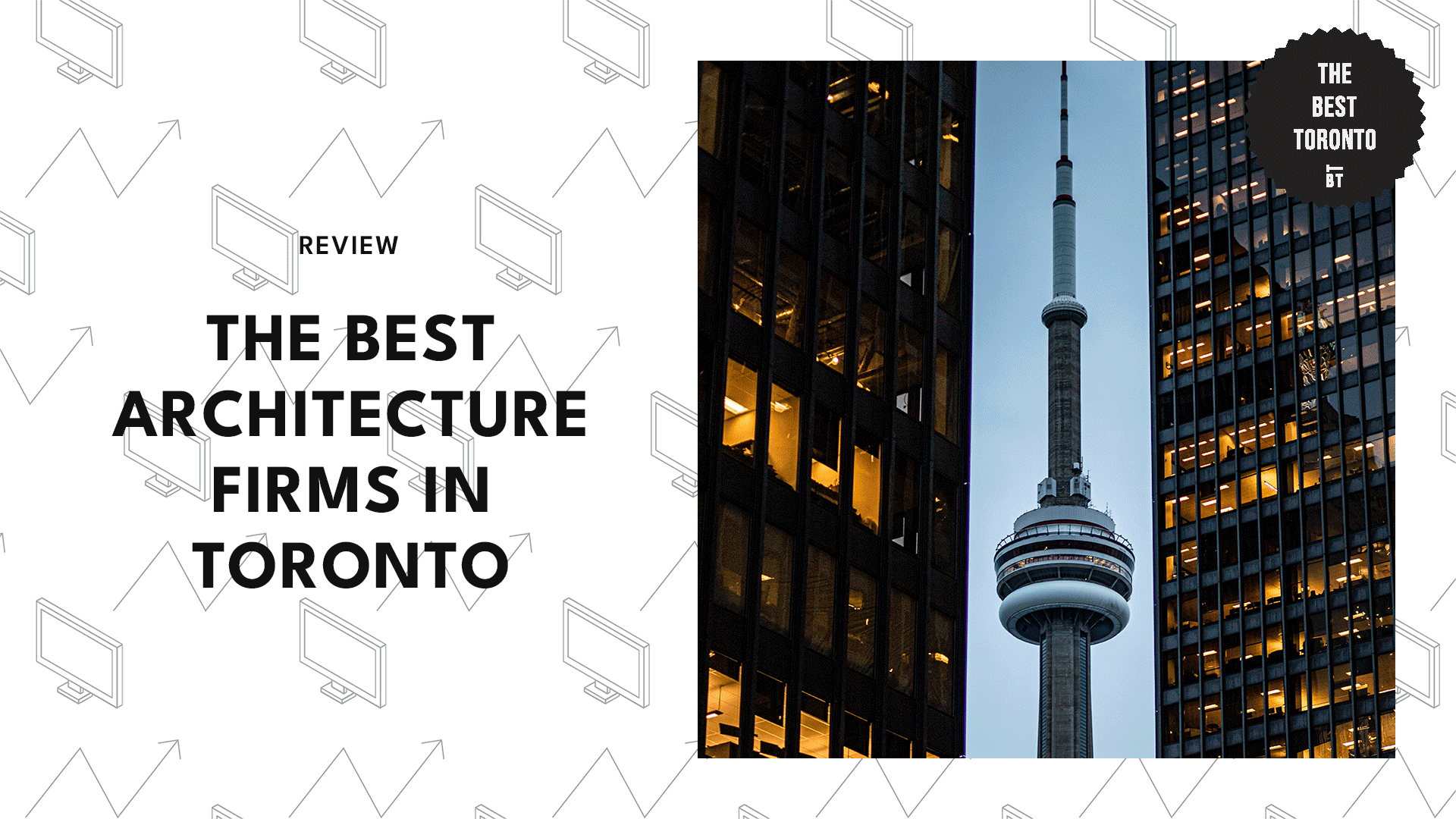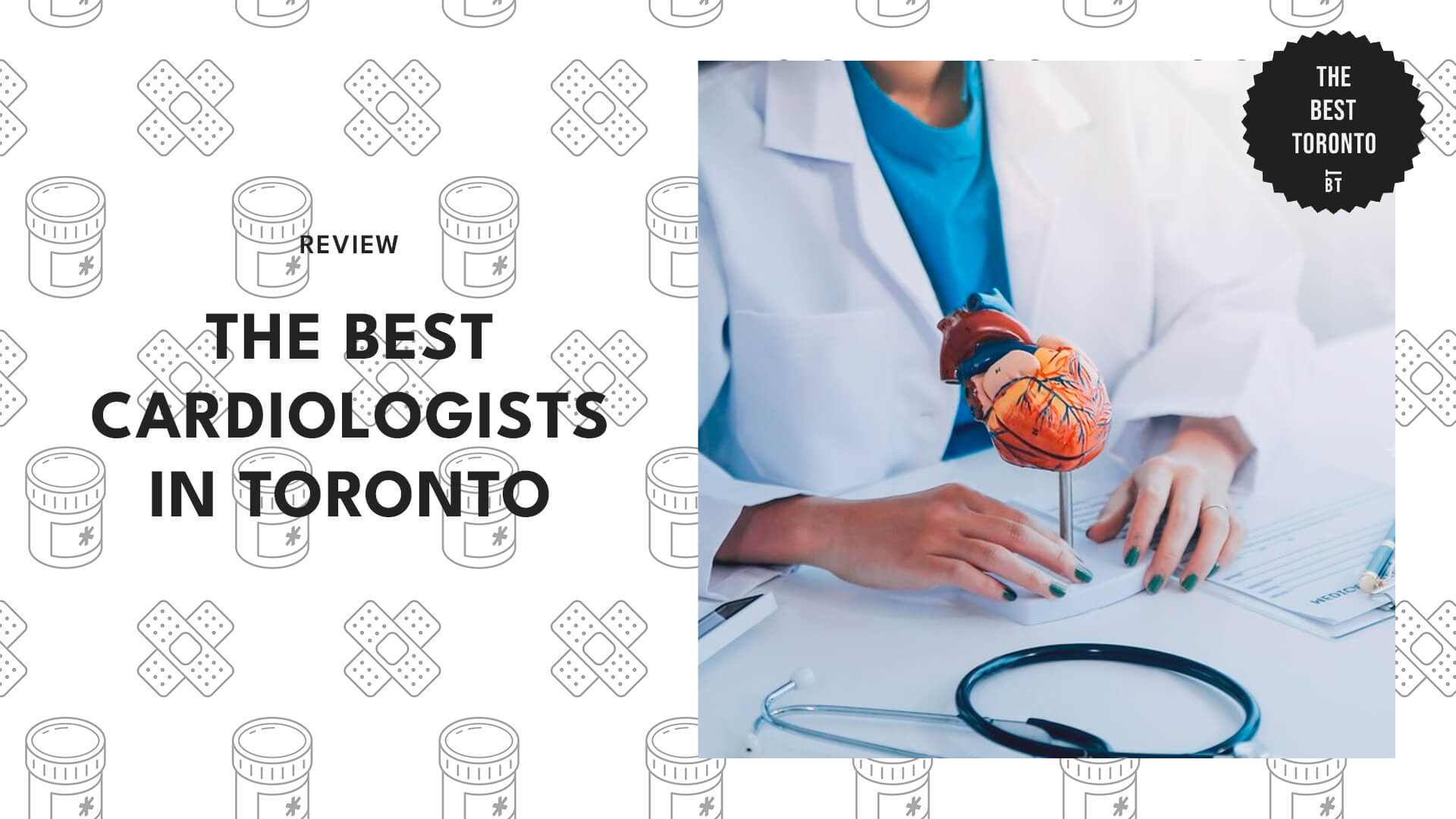Ah, family feuds are like reality TV shows — but with higher stakes and fewer commercial breaks. Just imagine drama hotter than a summer barbecue, with more twists and turns than a soap opera plot!
And just when you think it’s all settled, someone throws in a legal curveball that could rival a courtroom drama. That’s where family law and lawyers swoop in, ready to turn those family squabbles into a legal showdown worth watching.
The Family Law Act, R.S.O. 1990, c. F.3, aka Toronto Family Law, dives into a whirlpool of topics covering everything from family dynamics to domestic dilemmas and children’s issues.
Let’s take a peek at each of these categories to get a glimpse of the world of family law.
How much does it cost to hire a family lawyer in Toronto?

Hourly rates of family lawyers in Toronto typically range from $250.00 to $1,200.00. An experienced divorce lawyer in Toronto can charge as high as $500-600 per hour on average.
Of course, the amount may not cover extra charges like paperwork, filing, and other related fees.
What services can I expect from a family lawyer in Toronto?
A family lawyer in Toronto can provide services including (but not limited to) divorce and separation assistance, child custody and support matters, adoption, domestic contracts, and guardianship help.
This is to achieve fair outcomes while prioritizing the best interests of any involved children. With that answered, let’s go over the services briefly.
Divorce and Legal Separation

In Toronto, when a couple calls it quits, they have two main options: divorce or legal separation.
When a marriage hits the rocks and can’t be salvaged, it’s time to untangle the knot. This can happen for a variety of reasons — maybe they’ve been living apart for a year, adultery, or cruelty.
The first step is filing paperwork. Filing those divorce papers kicks things off, and then it’s up to the court to play referee, dividing up the assets and deciding who gets what in terms of support.
If calling it quits isn’t quite on the agenda yet but they still want to live like they’re single, that’s where a separation agreement comes into play. This contract covers all the details like who gets the child or children, who pays the bills, and who keeps the good china.
And just because they’re living separate lives doesn’t mean they’re off the hook for being legally bound together. Until those divorce papers are inked, they’re still married.
Separation reasons are up to the couple — no proof needed. And if one party decides to throw the agreement out the window, the other can drag them to court.
But before they put pen to paper, it’s a good move for each to have a sit-down with their own legal team to make sure everything’s on the up and up.
Child Custody and Visitation

In Toronto, when parents split, they tackle child custody and visitation. The goal is to keep the child or children safe and connected to both folks.
Ideally, parents hash out agreements themselves. But if not, courts step in, prioritizing the child or children’s well-being.
Custody boils down to decision-making power (legal custody) and where the child resides most (physical custody).
Visitation (or access) determines how much time the child or children spend with each parent, flexible to suit the family’s needs — weekdays, weekends, holidays, you name it.
Courts weigh factors like the child’s age, their bond with each parent, and their preferences if old enough. The bottom line is all about what’s best for the little ones.
Parents are encouraged to set aside their squabbles and focus on what matters most: their child or children.
Child Support
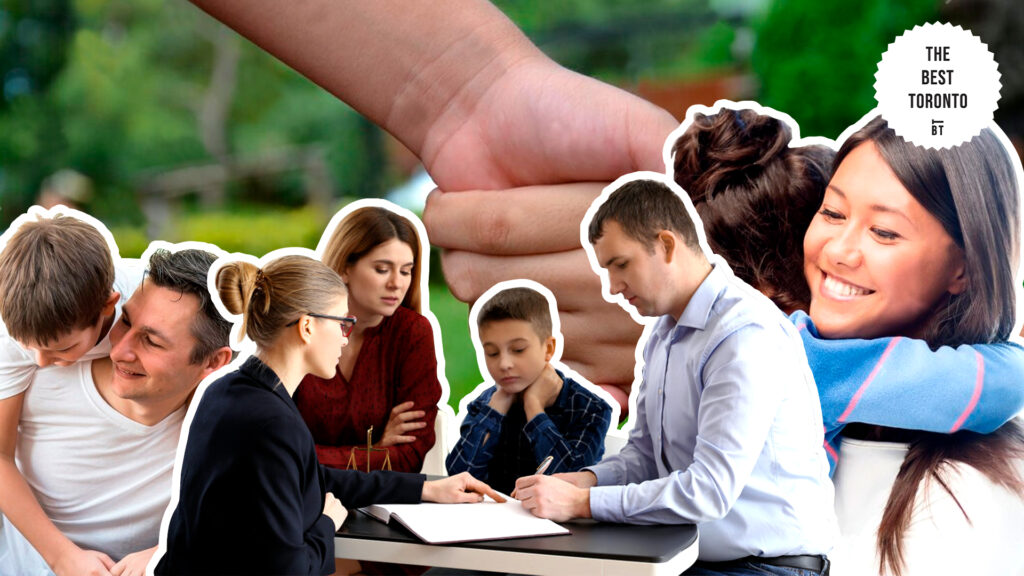
Child support is cash parents pay to help raise their children. In Toronto, both parents chip in, regardless of their relationship status.
The amount follows Federal Guidelines, considering each parent’s income, number of children, and custody arrangements. Usually, the parent with less time pays support to the other.
It covers essentials like housing and food, maintaining the child’s standard of living. Payments are regular and they adjust with financial changes as timely support is important for the child’s welfare.
Adoption

Adoption in Toronto is where individuals or dynamic duos legally swoop in and become parents to children who aren’t biologically theirs.
First, prospective parents either go to licensed adoption agencies or check directly with the Ministry of Children, Community and Social Services.
They get grilled (in a friendly way) with assessments, including home inspections, to see if they’re capable and qualified. Once they get the green light, it becomes a matchmaking game.
They’re paired up with a little one based on all sorts of criteria. Then comes the trial period, where they’re under the watchful eye of the adoption agencies.
Finally, it’s showtime in court, where the adoption gets the official stamp of approval, and they get legal parenthood.
Paternity
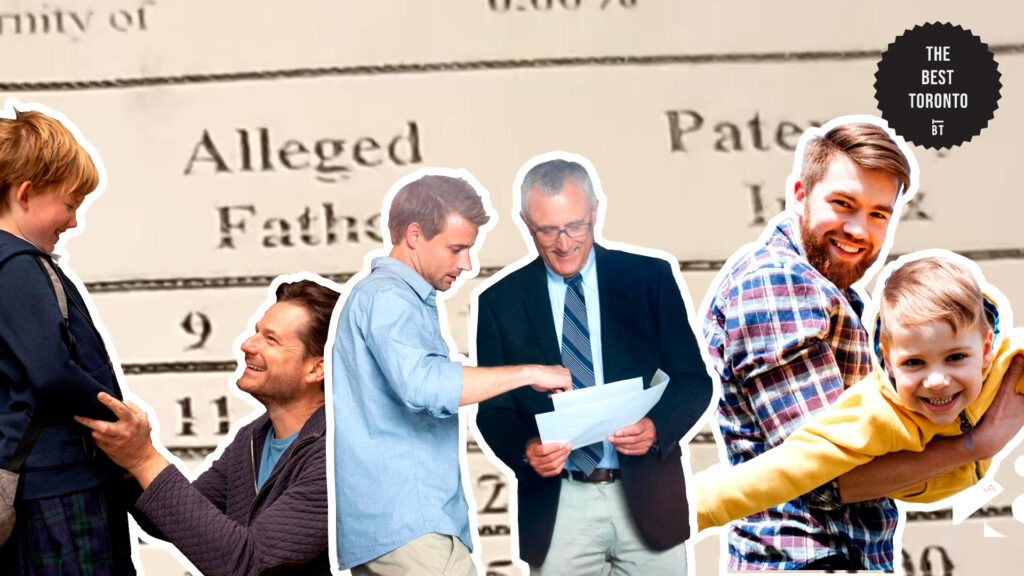
In Toronto, establishing who’s the father of a child can be quite the adventure. However, there are two trusty methods to do so.
First up, there’s the voluntary declaration. This is where unwed parents pen their names on the Declaration of Parentage form.
Alternatively, they can play catch-up and sign it later at a government office.
But when doubts rear their ugly heads, it’s time to bring in the big guns: genetic testing. This means taking DNA samples from the child (or children), the alleged father, and maybe even the mother — and sending the samples off for scientific scrutiny.
Once the dust settles and paternity is confirmed, it’s time for the father to access parental rights and responsibilities: child support, custody battles, and the occasional weekend visit.
Domestic Violence and Restraining Orders
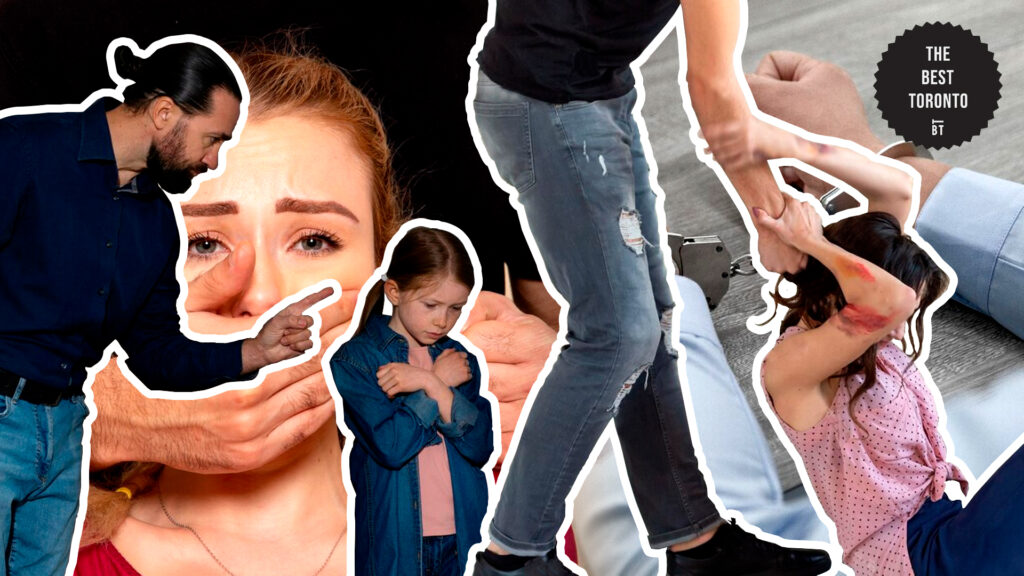
Toronto doesn’t mess around when it comes to domestic violence. Domestic violence isn’t just about bruises and black eyes.
It’s a mix of physical, emotional, sexual, or financial abuse inflicted by someone close to you, like a partner, spouse, or family member.
But with some legal firepower, people can get a restraining order, also known as a peace bond. These are court-issued shields that keep the abusive jerks at bay, barring them from so much as a whisper or a peek in your direction.
And these orders can lay down some serious ground rules. These include keeping the abuser away from your turf, your workplace, and even your children’s school.
To get one of these, you’ll need to do a bit of paperwork and provide evidence of the abuse. This means police reports, witness statements, or even medical records.
Once you’ve got everything lined up, it’s up to the court to decide and grant that restraining order. Violations can mean a lot of penalties: fines, jail time — you name it.
And, there’s more support. From shelters to counseling to legal aid, Toronto has these in place to reclaim the safety and sanity of its residents.
Guardianship and Conservatorship
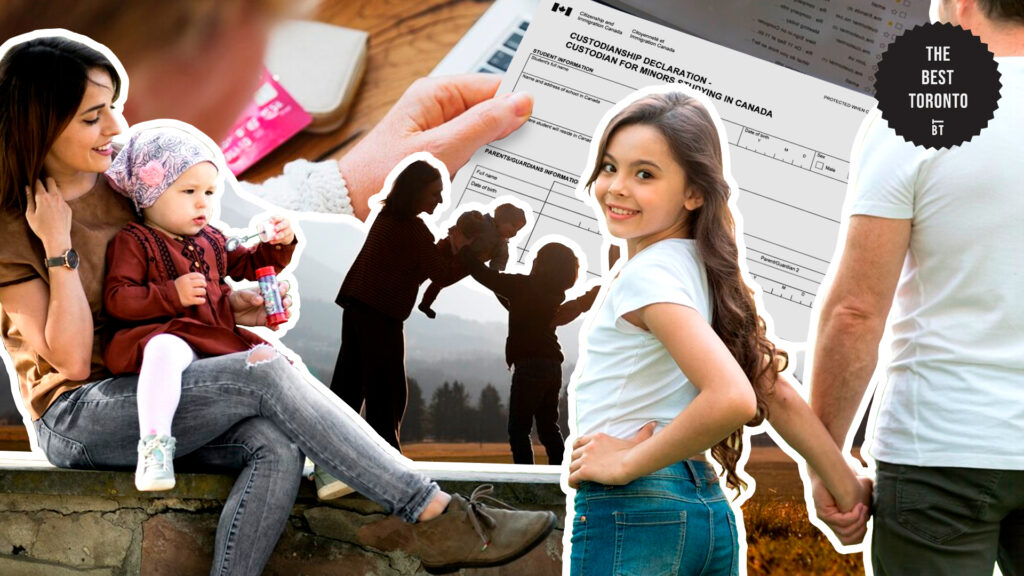
Guardianship and conservatorship in Toronto are all about making moves for those who can’t make one (safely) themselves. Guardianship is for children under 18.
It’s all about calling the shots on their upbringing, well-being, and more. This means decisions on education, health, and where they lay their heads at night.
Usually, it’s the parents who make the decision. But when they can’t, the court might tap a relative or even the Children’s Aid Society to step in.
Now, conservatorship is for the grown-ups who need a little extra TLC in the decision-making department. Whether it’s due to incapacity, disability, or illness, a conservator swoops in to handle the financial and legal nitty-gritty.
This means paying bills, juggling investments, and playing property manager — they do it all. When it comes down to it, it’s all about looking out for the best interests of the individual.
The court’s making sure every move is a step in the right direction for their well-being. And just remember, being a guardian or conservator isn’t just a fancy title — it’s a commitment.
They’re duty-bound to have the back of the person under their wing, ensuring every decision is a step towards their best life.
Prenuptial and Postnuptial Agreements

The world of love and legalities is where prenuptial and postnuptial agreements reign as the true paperwork of romance.
Before or after saying “I do,” couples can ink these contracts, mapping out who gets what if things go south or if there’s death at the door.
Let’s start with prenups. Signed pre-wedding, they’re a financial roadmap, covering everything from dividing up the goods to who gets the last word on alimony.
It’s ideal for protecting assets, especially if one or both lovebirds come with a hefty balance sheet.
Then there’s the postnup, the sequel to the prenup. Signed after tying the knot, it’s a chance to update the fine print on who gets the beach house and who’s stuck with the timeshare.
It’s handy for when life throws you curveballs or if you forgot to include that prized stamp collection in the pre-wedding details.
These agreements need to play by the rules, such as full financial disclosure — without any arm-twisting. And it’s best for each lovebird to have their own legal team to ensure fairness.
Here’s one final reminder: In the world of family law, things can get as twisty as a soap opera plot, so having a top-notch legal eagle in your corner is important and life-changing.
But how do you find the right family lawyer?
Well, you’ll need to find a lawyer who’s got all the right boxes ticked off — and with a track record that speaks for itself. In the end, it’s all about having your ducks in a row, having a lawyer who’s got your back, and having faith in Toronto’s legal system.

